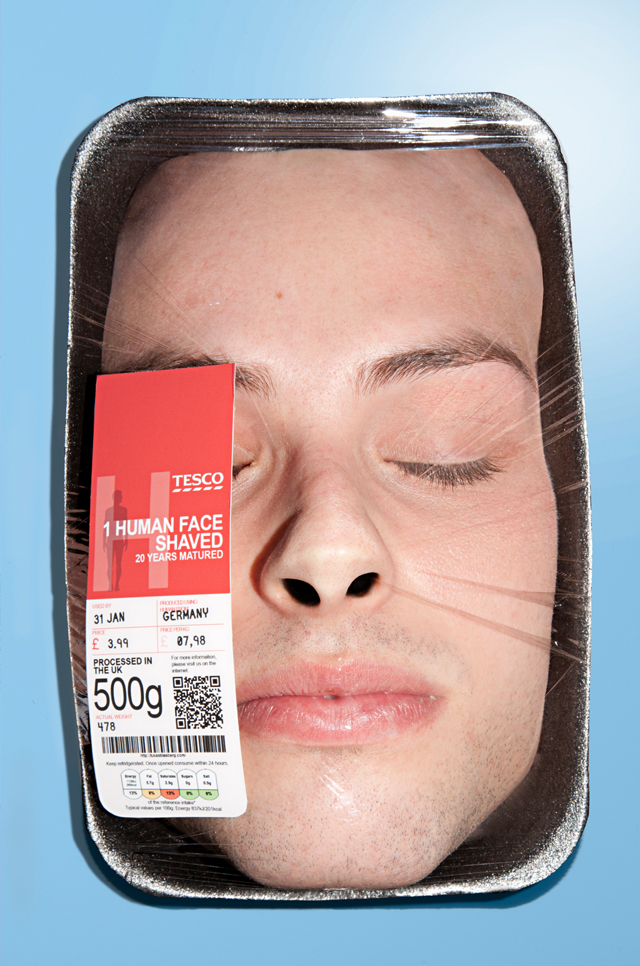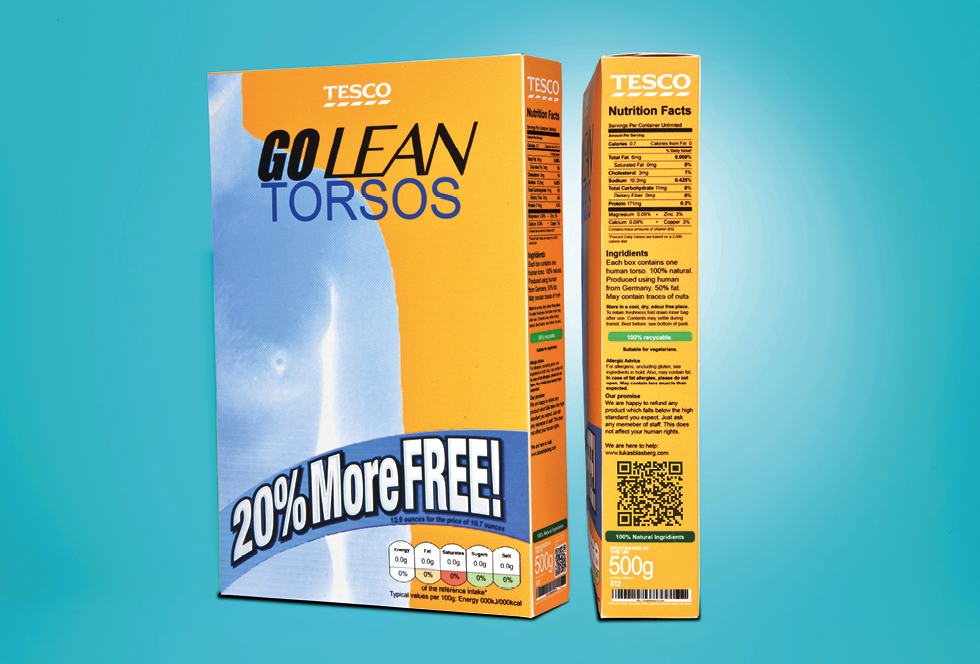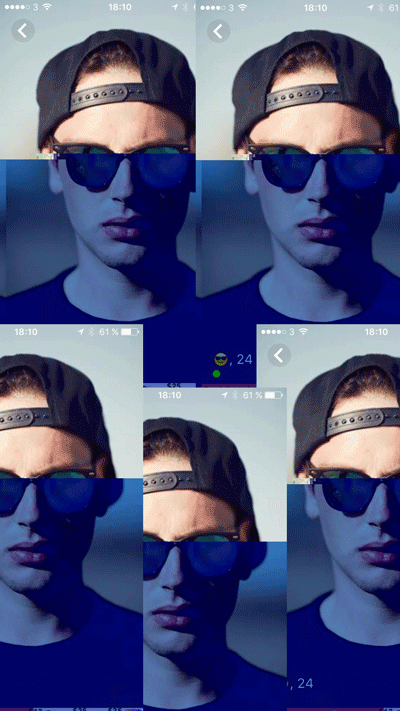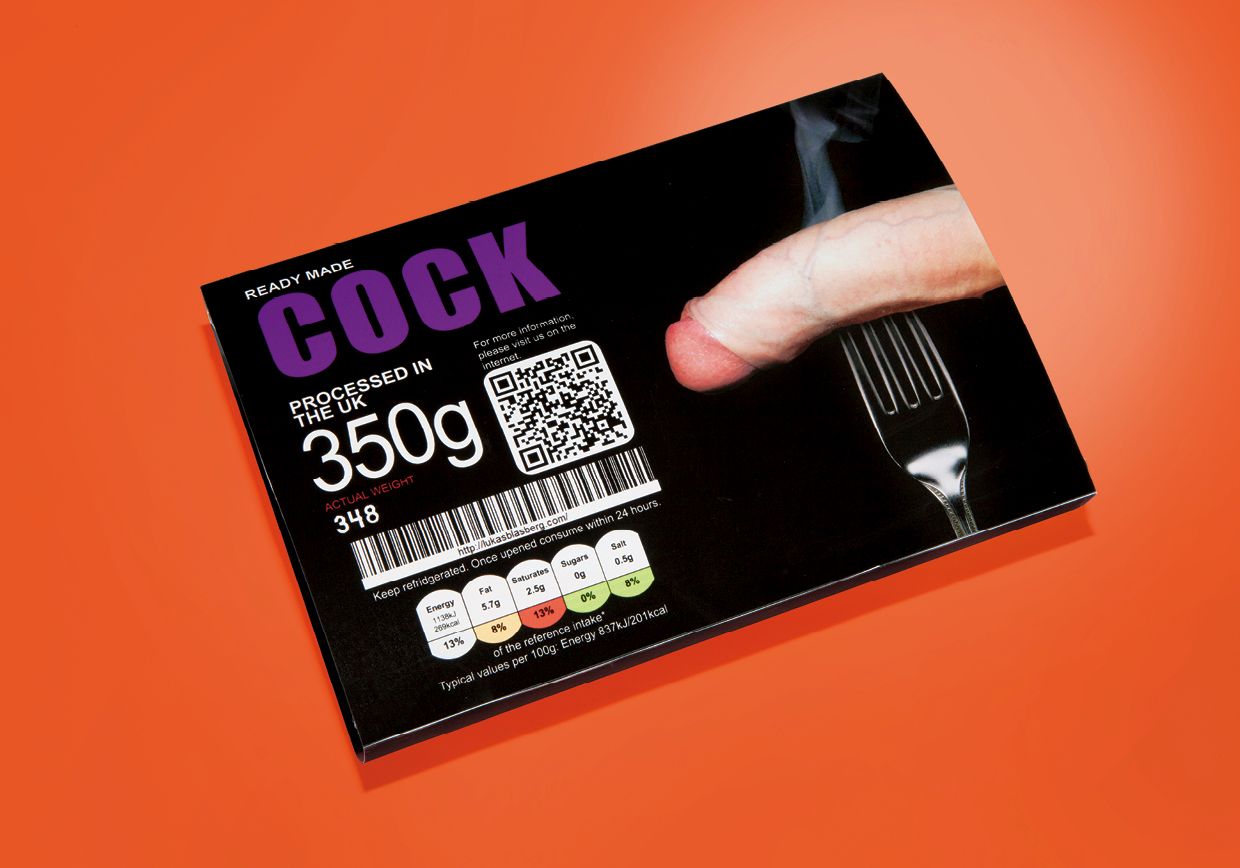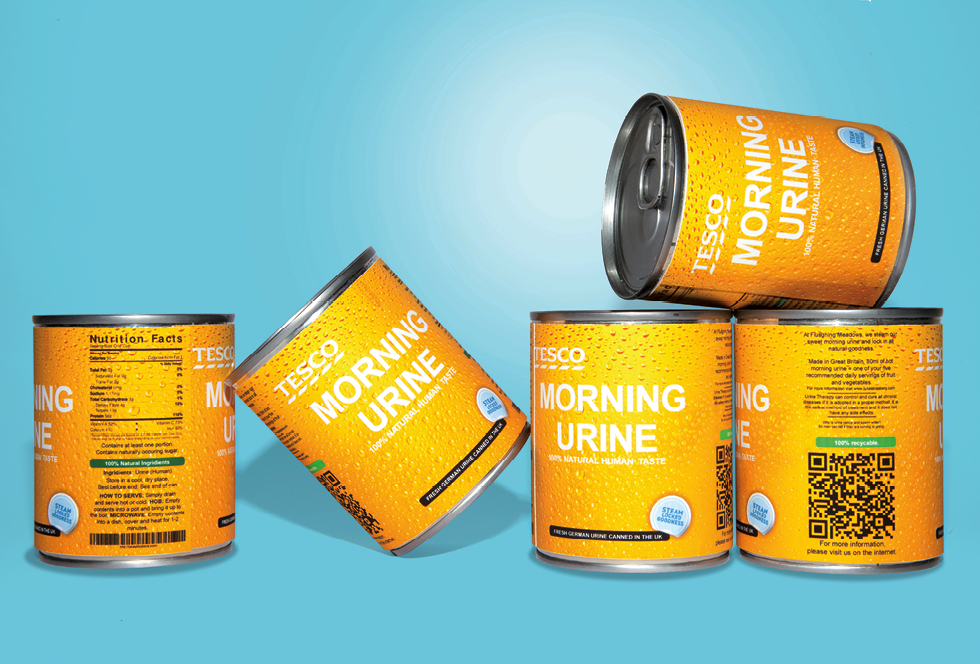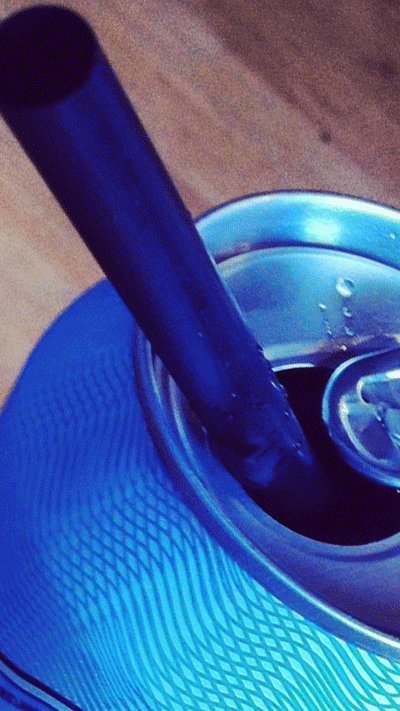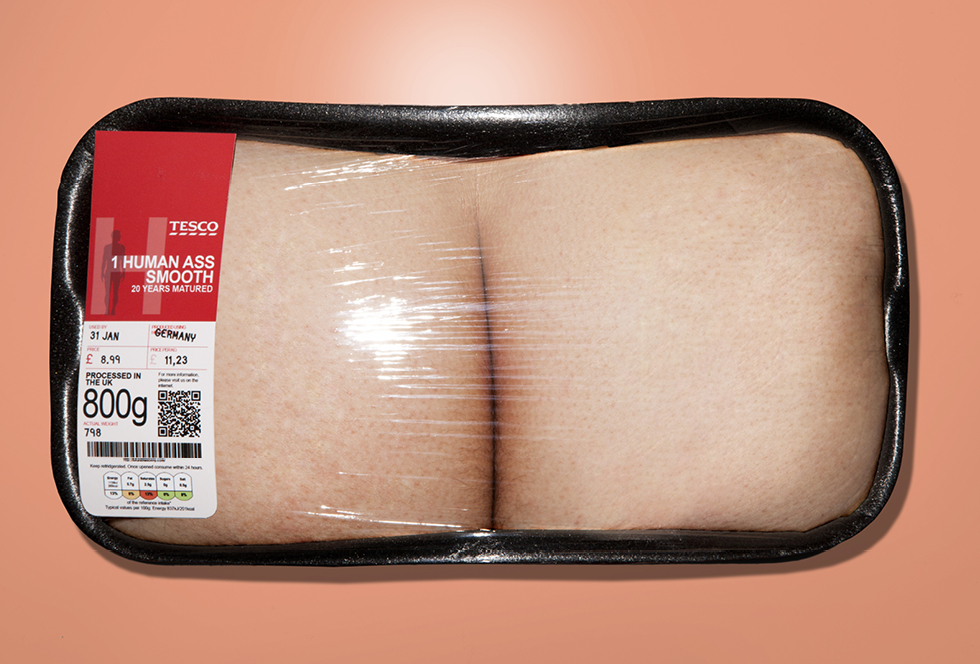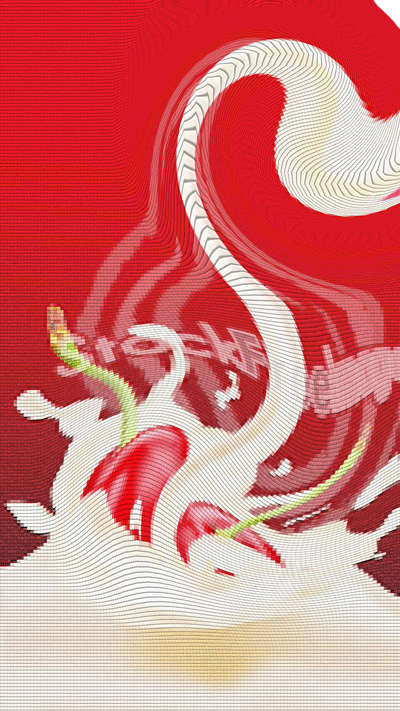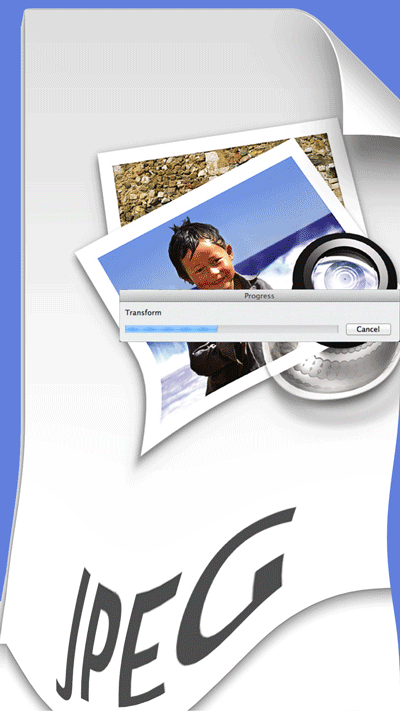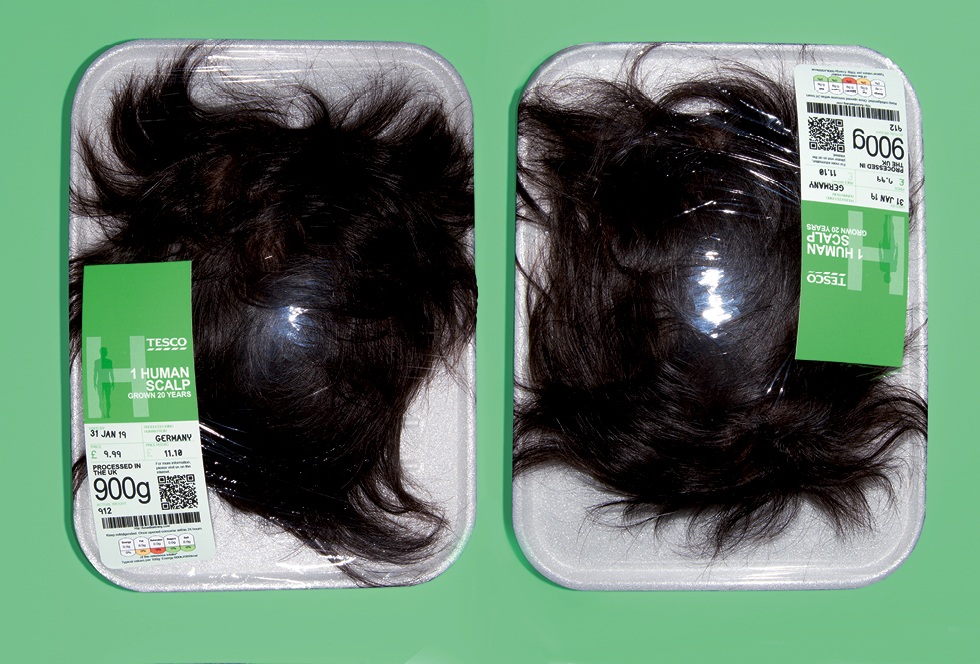







Fresh Meat
RELATIONSHOP
The internet has revolutionised the way we communicate. Millions of messages are exchanged in this very moment. As easy as it has become to talk to someone, it has become impersonal. We detach the human that is behind the icon from themselves. They become a thing. Dating apps like Tinder or Grindr fail on a grand scale due to this very reason. Online dating services promote a “relationshop” rather than relationship, leading to a society resting on the early pillars of alienation and isolation. Artist Lukas Blasberg took real life Tinder, Grindr etc. conversations and created products that depict each dilemma, he encountered. From fetishes to sexual objectification – every product carries a personal story that can be read by holding your phone camera against it.
Are We Products?
Dehumanisation by Technology
After the telegraph, telephone, radio and television; is the internet the latest technological advantage in interpersonal communication. As it is easy to use, quick and able to bridge great distances, it has become the main tool to maintain interpersonal relationships over
the past years. With its positive effects on platonic social life, users of the www have discovered its potential to improve their romantic social life via online dating sites and applications.
On dating websites or applications, such as Tinder, Grindr, Match, eHarmony, etc., users create profiles generally including photos, basic information (demographic, interests, hobbies), a selfdescription and desired characteristics in ideal partners. After this many sites provide suggestions on compatible people based on algorithms or suggest people in the area via geolocation services. Ten years ago online dating was highly stigmatised and considered pathetic and nothing one would necessarily share in public; whereas today it has become very popular. Websites and apps to search for and communicate with potential romantic partners are now offering access to an almost limitless amount of potential dates and relationships. According to recent surveys one in five relationships now starts online. It has become the second largest factor after meeting people through friends.
In a culture based on non-human contact, online dating has taken it to another level in terms of removing small talk from conversations or eradicating human contact at all; leaving people strive for affection that is ever so often missing in an online interaction. Instead of love and affection users are to experience loneliness and depression caused by the sparse and sterile social exchange within these services. Furthermore, online dating encourages people to deny each other human attributes causing a disturbing symmetry: People tend to give human qualities to objects and to treat each other as things.
As online dating services feature the segmentation of individuals into types (aggressive, submissive, etc.) and body parts (face, torso, breasts, bums and biceps‘) people become products framed onto a screen, competing on a marketplace. A marketplace where criteria checklists cause compulsive behaviour of scanning people, checking and sending messages at a vast speed. Online dating services promote a “relationshop” rather than relationship, leading to a society resting on the early pillars of alienation and isolation. The aim of this paper is to further explore the reasons for this dehumanised behaviour in online dating.
Online Dating Services promote a Relationshop rather than a Relationship
Contact
Need to message us? Please fill out the form
If you are interested in the Relationshop Series or in a specific piece, please get in touch and we will get back to you right away.



